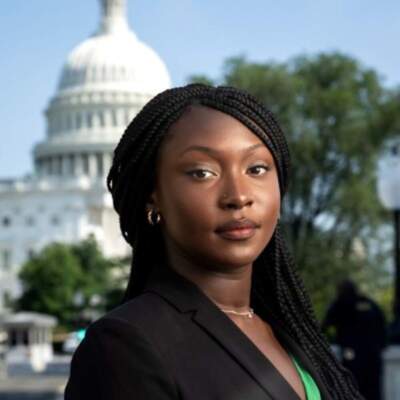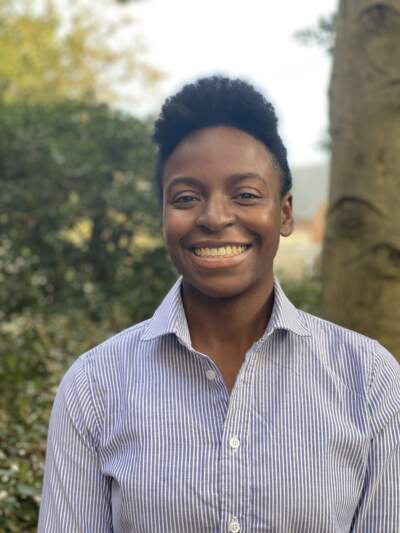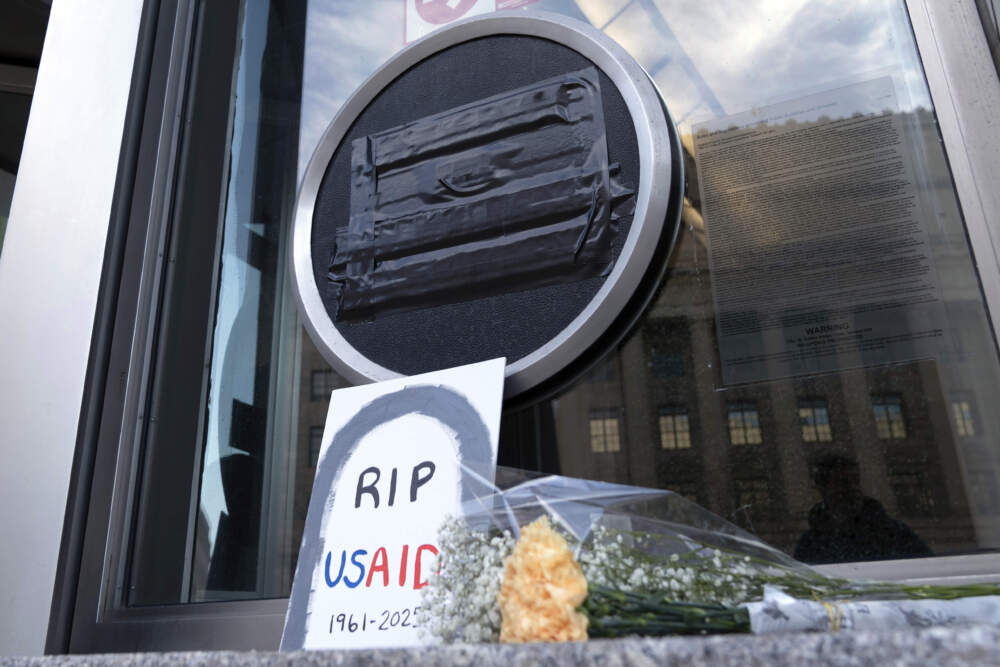Advertisement
Boston-area students' career plans vanish as White House slashes USAID fellowship
Fatou Jallow remembers hearing her grandmother tell stories about the many funerals she attended in Gambia. Far too often, people in her country died of treatable illnesses because they lacked access to medical care.
“I thought that was really jarring,” Jallow said. “In America, as a child, that's not something you really hear [happening].”

Those stories stuck with Jallow, eventually inspiring the 27-year-old to pursue a career with the U.S. Agency for International Development, which has assisted foreign nations with health care services, disaster relief and economic development since 1961.
Last year, Jallow took a big leap toward actualizing that career. The Harvard master's degree student was offered a competitive Donald M. Payne International Development Fellowship.
For more than a decade, the program has essentially functioned as a pipeline to USAID and leadership roles for historically marginalized and low-income individuals, offering partial funding for graduate degrees.
But in late February, Jallow's steps along that promising avenue were cut off.
The Trump administration gutted USAID, eliminating much of the agency’s roughly 10,000-person workforce. It also abruptly canceled the Payne fellowship, telling program administrators in a Feb. 26 letter it was being terminated “for convenience” and because it was not aligned with "the national interest.”
Sixty current Payne fellows, many, like Jallow, in the middle of their graduate studies, watched their financial aid and future careers vanish.
"The rug was pulled beneath our feet,” Jallow said. “It's just really frustrating that, on what feels like on a whim, it's all taken away.”
"The rug was pulled beneath our feet."
Fatou Jallow
The fellows' lost opportunities provide early examples of painful consequences thousands of other students, faculty and researchers at Harvard and beyond may face as the Trump administration threatens to cut off billions of dollars in federal grants and contracts.
Sudden uncertainty
Since its inception, the Payne fellowship funded by USAID and administered by Howard University has supported more than 100 recipients in pursuit of graduate degrees like public health, economics and international development. They attend schools across the nation, including Harvard, Boston University and Tufts.
The fellows commit to working as USAID foreign service officers abroad for at least five years after they obtain their degrees.
For those set to graduate in May, the sharp end to the program was particularly destabilizing, according to Gary Juste, a now-former senior advisor of the fellowship.
"Suddenly, they don't have a job anymore,” Juste said, adding he's spoken with several fellows who've found it psychologically difficult to start a job search when they thought they'd already secured one.

Jioni Tuck, 27, is one of the students who must now pivot. The D.C. resident will wrap up her final semester at Harvard's School of Public Health this spring.
“I go on LinkedIn and … I'm doom scrolling because everyone that I follow has been laid off,” she said, referring to former USAID workers.
Tuck said it feels as if the entire field of global health has imploded, and she's trying to come to terms with the "lack of stability” in the industry she aspired to join.
Meanwhile, dozens of other recipients must figure out how to pay for their remaining years of study without Payne funds.
Staring down a roughly $70,000 annual tuition bill, Jallow said she considered dropping out of school. In her case, Harvard decided to make up her $12,000 shortfall so she can finish her degree.
But the loss of the fellowship also cost her a planned paid internship for the summer. The Houston resident said she's especially disappointed that she earlier turned down other opportunities — even in dating, to ensure she could move countries one day.
Advertisement
Beyond that, Jallow said she worries what will happen to people abroad who relied on USAID and its now decimated humanitarian efforts.
The 60-year-old agency stemmed disease outbreaks, provided infrastructure for running water and ran life-saving programs for the poor and sick. It played critical roles in curbing Ebola and fighting against AIDS. With nearly all of its contracts canceled, what little remains of its functions were shifted to the State Department.
"How many lives are now in jeopardy?” she said.

Tymber Felts, a Peace Corps volunteer in Ecuador, was a Payne finalist expecting to receive final word in January.
Just last week, fellowship administrators sent the 26-year-old an email: With a "heavy heart" they explained the program was canceled but encouraged applicants to "hold onto" their "passion for service."
“There's a lot of fear, I guess, and confusion and anger,” she said. "Seeing these [USAID] layoffs is kind of like, well, everything that we've been working so hard for doesn't really matter anymore.
“It seems like international development," she said, "in the U.S. at least, is pretty much nonexistent."
This segment aired on April 7, 2025.
